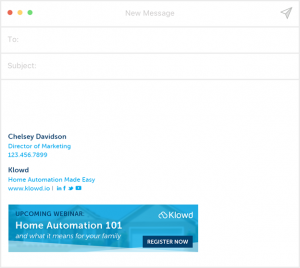— July 29, 2017

MartaCPST / Pixabay
It seems in nature, as well as business there is a rhythm to the way things work. Disrupt that rhythm and problems start to occur. We use all sorts of terms to describe that rhythm.
In science we describe this as a “steady state.” A system, whether it’s a physical process, chemical process, is in balance with the right flow. Sometimes scientists use the word “equilibrium.”
In nature, there are all sorts of rhythms–the tides, the seasons, sun rise/set, currents, and so forth. Disrupt these rhythms, sometimes terrible things happen — a lot of the climate change discussion is really about the disruption of these rhythms.
Our own heart beat and breathing establishes the rhythm critical for our own lives.
In music, it’s the beat. Absent a beat/rhythm it becomes discordant noise.
In agriculture, there are the seasons and growth cycles.
Anyone that has ever competed in rowing, knows the importance of the beat in coordinating the crew and maximizing boat speed.
I’m a competitive cyclist, cadence is important in maximizing my performance. Regardless whether I’m on the flats or climbing a hill, I want to stay close to the same optimal cadence (I happen to be a lower cadence/higher power spinner).
In the financial markets, there are rhythms that drive the market–sometimes these are very complex, but in the world of “quants” they discover these rhythms and what causes disruption in the rhythms.
In manufacturing there are rhythms. Fans of lean manufacturing recognize each line has it’s own rhythm or TAKT time. Disrupt that TAKT time and problems occur in productivity, quality, inventories, and so forth.
Sales has it’s rhythms too. We tend to call these rhythms cadence.
Like everything else, absent a cadence, our work is chaotic–perhaps interrupt driven, react oriented, often aimless without clear purpose.
Having a clear cadence(s) for the organization establishes an operational rhythm that makes sense of our activities and provides direction, clarity, priorities. This cadence provides clear alignment across the organization.
The fantastic thing about selling is we get to choose the cadence (s) that are important to us and how they shape our activities and purposefulness in producing results.
Many have a default cadence driven by month end/quarter end/year end revenue goals. That’s really a difficult cadence to manage to since we are focused on trailing events or outcomes.
In sales, defining the cadence enables us to define the pattern of critical interactions to define, shape, and achieve our goals. The cadence assures we are doing the right things, at the right time, with the right people.
The review process(es) are key tools in establishing the cadence of the organization.
Consistent, regular deal reviews, build our capabilities in developing and executing winning deal strategies. Managers consistently reviewing deals build this strong capability in their teams. Look at your own organization. Are your win rates low or inconsistent? Are your cycle times all over the place? Ask yourself the question, “How frequently/consistently are managers conducting deal reviews?” You will see high performing organizations have a defined, regular cadence to the deal review process. (We recommend managers have a cadence of at least one deal review with a sales person each week.)
Likewise, pipeline reviews, focusing strictly on pipeline integrity, quality, volume, and velocity. Regular pipeline reviews at the right cadence, over time, produces strong, healthy pipelines.
One on one’s, focusing on developing our people, looking at how they use their time, assessing attitudes, understanding concerns—all conducted regularly help drive engagement, improve productivity, reduce voluntary attrition, and drive performance.
Many readers will say, “Well we do those things, we do deal reviews, we do pipeline reviews, we do one on ones, we do account reviews, prospecting……..”
The problem is they don’t do them consistently on a regular cadence. The magic in driving performance (it’s actually no magic at all) is defining and adhering to a disciplined cadence in these key processes and focus areas.
It’s that consistency that build and sustains performance over time. It’s what creates the great “habits” in consistent execution.
The thing we, as sales leaders get to do, is we get to choose and set the right cadence to align everyone on our team, to drive the consistent behaviors and priorities important to achieving our goals.
Business & Finance Articles on Business 2 Community
(138)
Report Post






